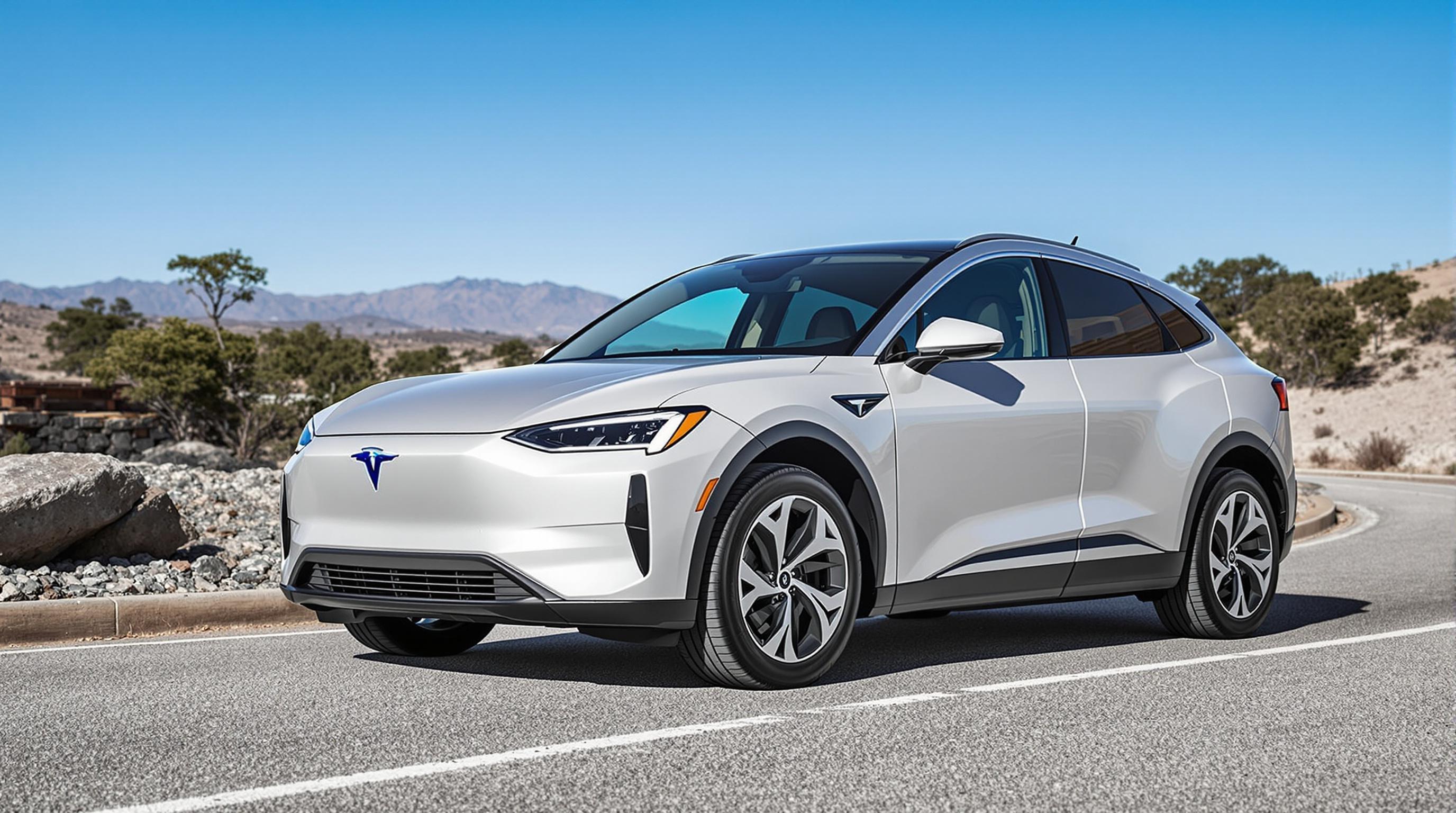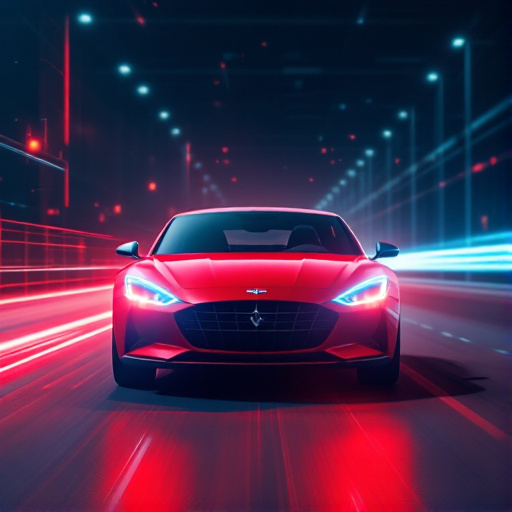Related Articles
- Unveiling the Unthinkable: How Your Social Media Posts Could Impact Your Car Insurance Premiums
- "From Showroom to Social Media: How Dealerships are Becoming Digital Storytellers in 2023"
- "From Showroom to Stream: The Rise of Virtual Reality Test Drives at Dealerships"
- Revving Up Sales: How Virtual Reality is Transforming the Dealership Experience for Shoppers and Sellers Alike
- Selling Experiences: How Dealerships Can Transform into Immersive Automotive Entertainment Hubs
- The Surprising Impact of Your Credit Card Habits on Car Financing: What You Didn't Know!
Top 8 Must-Compare Electric SUVs Launched Since 2019: Expert Reviews, Rankings, and Buying Insights
Top 8 Must-Compare Electric SUVs Launched Since 2019: Expert Reviews, Rankings, and Buying Insights
Top 8 Must-Compare Electric SUVs Launched Since 2019: Expert Reviews, Rankings, and Buying Insights
Introduction to Electric SUVs
The automotive industry has witnessed a significant transition towards electric vehicles (EVs) in recent years, with electric SUVs gaining notable attention for their blend of eco-friendliness and practicality. Since 2019, numerous manufacturers have introduced electric SUVs catering to various market segments, from compact crossovers to luxury SUVs. These vehicles offer a compelling mix of zero-emission driving, advanced technology, and spacious interiors.
Consumers are increasingly seeking electric SUVs due to rising environmental concerns and improved EV range capabilities. This trend has spurred competition among manufacturers, resulting in a diverse lineup of models each boasting unique strengths such as performance, design, and affordability. Understanding these differences is critical for prospective buyers to make informed decisions.
This article provides an expert overview of the top eight electric SUVs launched since 2019, complete with rankings and buying insights. We draw upon reviews from credible automotive sources including Car and Driver, Motor Trend, and Consumer Reports, aiming to guide readers through the evolving landscape of electric SUVs.
1. Tesla Model Y
The Tesla Model Y, unveiled in 2019, has quickly become a benchmark in electric SUVs due to its performance, range, and innovative features. Offering an estimated range of up to 330 miles depending on the variant, it delivers impressive acceleration with a 0-60 mph time as low as 3.5 seconds in the Performance model.
Experts praise the Model Y for its spacious interior, minimalist design, and extensive Supercharger network which eases long-distance travel. However, some reviews mention sporadic build quality concerns and an often polarizing infotainment system. Its Autopilot advanced driver assistance system remains a key selling point in this segment.
From a buying perspective, the Model Y commands a premium price, but its resale value tends to be strong due to Tesla’s brand appeal and continuous software updates. It remains a top contender for buyers prioritizing technology and range in an electric SUV.
2. Ford Mustang Mach-E
The Ford Mustang Mach-E, launched in late 2019, marked Ford's bold entry into the electric SUV market with a sporty design inspired by the iconic Mustang coupe. It offers multiple battery options, delivering a maximum estimated range of about 305 miles for the extended-range rear-wheel-drive version.
Reviewers highlight the Mach-E’s dynamic driving experience, modern interior, and user-friendly SYNC 4 infotainment system. Some critiques cite limited rear visibility and a relatively firm ride as minor drawbacks. Its availability in several trims provides a range of performance and price options.
Buyers attracted to sporty styling combined with practicality find the Mach-E appealing. Additionally, its competitive pricing and expanding charging infrastructure make it a strong alternative in the growing electric SUV market.
3. Volkswagen ID.4
As Volkswagen’s first global electric SUV, the ID.4 launched in 2020 bringing a fresh and practical approach to the segment. It targets mainstream buyers with a balance of range, comfort, and affordability, offering an EPA-estimated range of approximately 250 miles.
Experts commend the ID.4 for its spacious cabin, smooth ride quality, and intuitive interior layout. While its acceleration isn’t as sporty, the SUV prioritizes efficiency and usability. Some reviewers mention a learning curve in the infotainment controls and a lack of rear seat legroom compared to competitors.
The ID.4 appeals to buyers seeking a straightforward electric SUV with solid value and German engineering. Volkswagen's growing commitment to EVs and a competitive pricing strategy make the ID.4 a worthy candidate in purchase considerations.
4. Hyundai Kona Electric
The Hyundai Kona Electric introduced in North America in 2019 offers a compact yet versatile electric SUV experience. It boasts an EPA-estimated range of 258 miles and is praised for its efficient use of energy and impressive standard safety features.
Industry reviews attribute the Kona Electric’s success to its nimble handling, user-friendly infotainment system, and robust warranty coverage. Its size suits urban driving and smaller families, although rear seat space and cargo volume are limited relative to larger SUVs.
Consumers looking for a budget-conscious electric SUV with long range and reliability often choose the Hyundai Kona Electric. Its competitive pricing and positive owner feedback underscore its value proposition in the market.
5. Audi e-tron
The Audi e-tron, officially launched in 2019, represents the German luxury marque's serious foray into the electric SUV arena. It offers a refined driving experience combined with premium build quality and a well-appointed interior featuring virtual side mirrors on some trims.
Although its range of about 222 miles lags behind Tesla and others, reviewers applaud the e-tron for a comfortable and quiet ride, strong safety scores, and advanced driver assistance technology. The SUV’s quattro all-wheel-drive system enhances traction in varying conditions.
Luxury buyers seeking a traditional premium feel with the benefits of electrification often gravitate towards the Audi e-tron. While price points are higher, the e-tron competes effectively on the basis of brand prestige and driving comfort.
6. Kia EV6
Launched in 2021, the Kia EV6 quickly garnered attention for its sharp styling and cutting-edge technology wrapped in an electric crossover body style. It boasts an estimated range of up to 310 miles and supports ultra-fast charging capabilities.
Experts highlight the EV6’s athletic handling, spacious cabin, and an impressive suite of active safety features. Its two-motor all-wheel-drive variants provide spirited acceleration, while the well-designed interior appeals to modern buyers.
With a competitive price and a 10-year battery warranty, the EV6 provides strong buying incentives. It is a compelling choice for buyers who want a futuristic yet practical electric SUV with solid performance credentials.
7. Volvo XC40 Recharge
The Volvo XC40 Recharge, arriving in 2020, offers a blend of Scandinavian design and environmentally conscious engineering. Its all-electric powertrain delivers about 223 miles of range and is complemented by a strong emphasis on safety and sustainability.
Reviewers note the XC40 Recharge’s responsive handling, premium interior materials, and Google-based infotainment system that enhances usability with voice commands and seamless updates. However, heavier weight impacts efficiency somewhat compared to rivals.
Volvo’s reputation for safety attracts buyers seeking a secure and responsible electric SUV. The XC40 Recharge fits well for those valuing design, technology, and brand trust alongside EV benefits.
8. Mercedes-Benz EQB
Launched in 2021, the Mercedes-Benz EQB expands the EQ lineup with an electric SUV emphasizing luxury, flexibility, and family-friendly features. It offers seating for up to seven passengers and an estimated range around 260 miles on a single charge.
The EQB benefits from Mercedes’ signature craftsmanship, advanced MBUX infotainment system, and a smooth, quiet ride. Critics mention a modest range relative to competitors but acknowledge the EQB's utility and comfort are standout qualities.
For premium buyers needing a versatile electric SUV with upscale appointments and third-row seating, the EQB represents a thoughtfully designed option. It reinforces Mercedes-Benz’s commitment to electrification in the SUV segment.
Expert Rankings and Buying Insights
Rankings by experts such as Edmunds and Kelley Blue Book typically place Tesla Model Y and Ford Mustang Mach-E near the top due to their combination of range, performance, and technology. Hyundai Kona Electric and Kia EV6 often rank highly for value and efficiency in the compact segment.
Luxury options like Audi e-tron, Volvo XC40 Recharge, and Mercedes-Benz EQB appeal to buyers prioritizing premium features and brand cachet, despite shorter ranges and higher pricing. Volkswagen ID.4 represents a balanced mainstream choice with solid usability and comfort.
Prospective buyers should consider factors such as driving range, charging infrastructure, performance, interior space, and technological features aligned with personal needs. Test driving multiple models and assessing total cost of ownership including incentives will aid in making the best purchase decision.
Conclusion
The electric SUV market introduced since 2019 offers varied options compelling enough to meet diverse consumer priorities—from cutting-edge technology and extended range to luxury and affordability. As infrastructure and battery technology continue to improve, these models represent important milestones in the shift toward sustainable transportation.
By evaluating expert reviews, performance benchmarks, and practical insights detailed here, buyers can confidently identify which electric SUV fits their lifestyle and expectations. Continual advancements and expanding availability ensure that the choices will only grow richer in the coming years.
Staying informed about updates and manufacturer-supported warranties remains essential for maximizing satisfaction and value in purchasing an electric SUV today.




